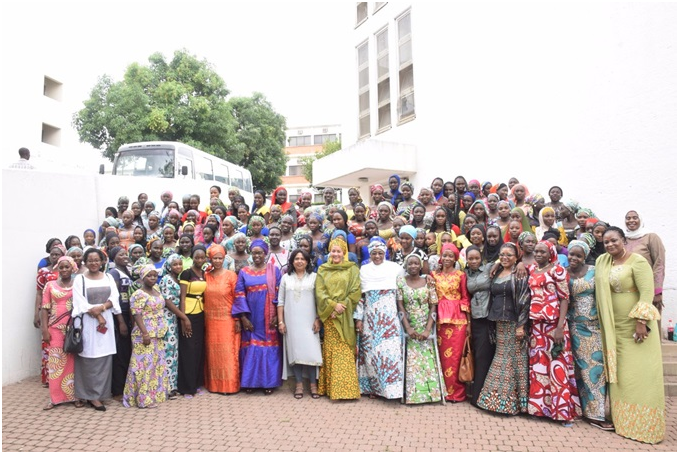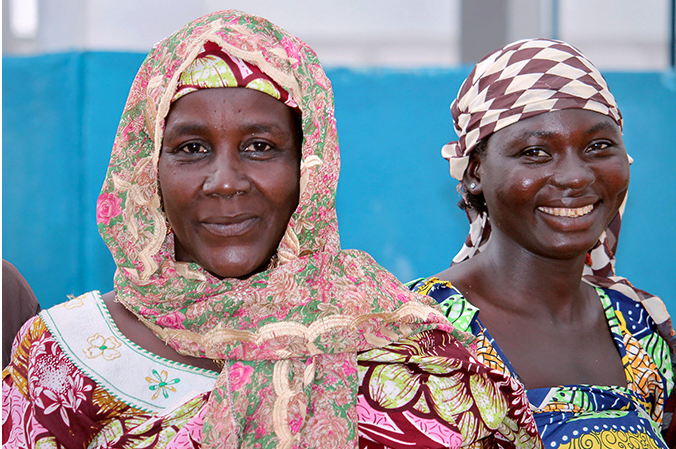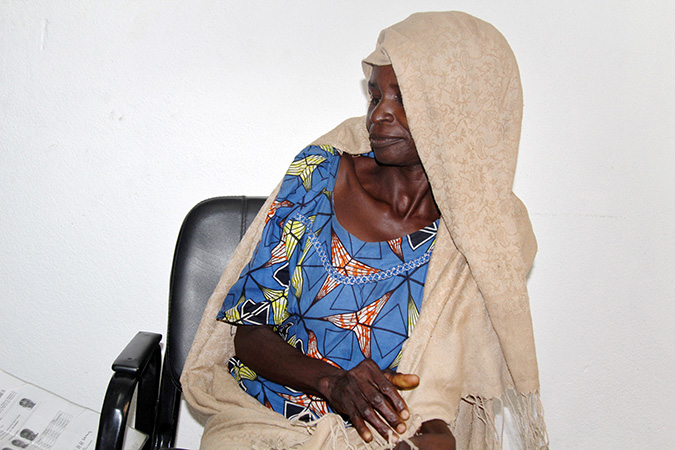UN Women – A 16-part blog series by UN Women Executive Director, Phumzile Mlambo-Ngcuka on the occasion of the 16 Days of Activism Against Gender-Based Violence campaign.
Sexual violence against women and girls in conflict-affected countries is being used as a tactic of war, with devastating consequences for women across the globe. This form of violence is the weapon of choice for armed actors looking to destabilize societies, given its ability to traumatize individuals, generate stigmatization, and fragment family and community bonds for years, even well after ‘peace’ has been made.
Experts have reported that the thousands of Yazidis enslaved by the Islamic State of Iraq and the Levant (ISIL) are also only a small proportion of the many women and girls that have been trafficked, sold, or raped as a core component of the group’s ideology and economic strategy in Iraq and Syria.
Similarly, the ‘Chibok girls’, released after their kidnapping in 2014 by Boko Haram represent only a fraction of the Nigerian women and girls exposed to sexual and gender-based violence by the extremist group.
The UN Secretary-General‘s 2017 report – and its predecessors – document the ways in which the existence of sexual violence in conflict as well as its legacy are preventing our ability as a world to move to peace and prosperity. We know that the suppression of women’s employment and education increases their risk of being exposed to sexual violence.
 United Nations Deputy Secretary-General Amina Mohammed; UN Women Executive Director, Phumzile Mlambo-Ngcuka; Special Representative of the Secretary-General on Sexual Violence in Conflict, Pramila Patten; and the African Union Special Envoy on Women, Peace and Security, Bineta Diop with gurls and women recovered after the Chibok kidnapping.
United Nations Deputy Secretary-General Amina Mohammed; UN Women Executive Director, Phumzile Mlambo-Ngcuka; Special Representative of the Secretary-General on Sexual Violence in Conflict, Pramila Patten; and the African Union Special Envoy on Women, Peace and Security, Bineta Diop with gurls and women recovered after the Chibok kidnapping.
It is important to recognize that the opposite also holds true, and is a strong tactic for our work to resist widening and repeating cycles of violence, where women and girls are systematically stripped of their rights to education, public life, and decision-making over their own bodies.
Economically empowered women have been shown to provide a buffer against the recruitment and radicalization of their children and other family members. This is a major aspect of UN Women’s work globally, but takes on additional urgency for countries where the signals of increasing suppression of women’s rights are being detected.
 Awal Wakili Moussa, Vice President of the Managing Committee of the Women Cohesion Space in Minawao (centre). With the economic assistance she received from UN Women, Moussa set up her own business. She now lives in the host community of Gawar, and organizes meetings between women refugees and the host community to facilitate understanding and cohesion. Photo: UN Women Cameroon/Fajong Joseph
Awal Wakili Moussa, Vice President of the Managing Committee of the Women Cohesion Space in Minawao (centre). With the economic assistance she received from UN Women, Moussa set up her own business. She now lives in the host community of Gawar, and organizes meetings between women refugees and the host community to facilitate understanding and cohesion. Photo: UN Women Cameroon/Fajong Joseph
In one example of how this can be done for survivors, in Cameroon, we are supporting productive safe spaces for women in Minawao refugee camp. In these Women Cohesion Spaces, refugees can network, learn new income-generating skills, and recover from the trauma of war and sexual violence. The package of services offered survivors includes psychological treatment and economic assistance with new skills in small business management and referrals to medical, legal and judicial services.
In 2007, the UN launched its first-ever global campaign responding to sexual violence in conflict.In the years since, violence against women in conflict-afflicted areas has become a subject of increasing action and discussion internationally, with funding for research, advocacy and action growing significantly, and new programmes reaching hundreds of thousands of survivors every year. Unprecedented advances are being made in awarding reparations for sexual violence survivors. In 2009, the first-ever conviction was made for crimes against humanity of sexual slavery and forced marriage in Sierra Leone, and in 2016, the International Criminal Court made a landmark conviction against Jean Pierre Bemba for atrocities committed in the Central African Republic. There has been recognition that the UN’s own forces can also be perpetrators, and a determined effort is being made to stamp this out.
To protect our future, it is vital to build resilient families and communities but we also must ensure that there is investment in good governance, sustainable development, conflict prevention and peacebuilding strategies that empower women as decision-makers and partners, and protect the rights of women and girls to education, justice and security.


